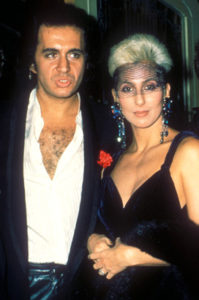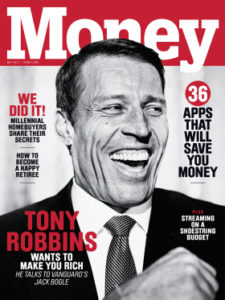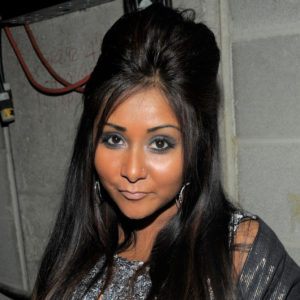Look, I get it.
Everyone wants to be regarded, whether they come right out and say it or not. Even the most introverted personality has a subconscious desire to be “somebody.” But as it seems the economic middle-class is fading, so too does it seem that the kind of b-level, character actor brand of celebrity is also disappearing. You’re either something or you’re nothing. You’re either breaking the Internet or you’re broken. Everything in-between is folding laundry and using the restroom.
 So I don’t think it should be a surprise to find someone like Danielle Bregoli falling into pop culture. Chances are, you never wanted to know about Bregoli but, even so, you do. She is, of course, the “Cash me ousside” girl, soon to have her own reality TV show, although that term — reality TV — has slipped so far outside of the walls of reality, it’s oxymoronic. There’s little to nothing very documentarian about the genre. It’s more a catch-all for a form of semi-scripted, semi-improvisational entertainment.
So I don’t think it should be a surprise to find someone like Danielle Bregoli falling into pop culture. Chances are, you never wanted to know about Bregoli but, even so, you do. She is, of course, the “Cash me ousside” girl, soon to have her own reality TV show, although that term — reality TV — has slipped so far outside of the walls of reality, it’s oxymoronic. There’s little to nothing very documentarian about the genre. It’s more a catch-all for a form of semi-scripted, semi-improvisational entertainment.
Bregoli has seemingly shown her main talent to be being “an Internet villain,” whatever that means. She is envied in part for the “I don’t give a f###” attitude. She is destined to be the Snooki for her generation. Consider this: only five years ago, the name “Snooki” was everywhere and now, with this statement, you’ve just been reminded that she ever existed. This is exactly what I mean about the current, very digital and very inflexible nature of celebrity: it’s a 1 or a 0, either on or off, but nothing in the middle.
Such strict parameters might be hard for the individual who is real only when they are trending, but they are brutal for the makers and do-ers of the world. For most of these folks, who may spend years of their lives in the act of building something — be it a business, a brand, art, or a movement — they have to see someone achieve the same level of notoriety for just being. Sometimes they achieve far, far more notoriety.
It’s hard to place the blame on any singular culprit. Is it the 24-hour news cycle where the most important thing in the world is only important when the commercial breaks aren’t happening? Is it the Internet, where the sheer mass of participants with non-stop connectivity demands only the loudest, brashest, and feistiest survive?
 I’d say that neither are the main cause, but are certainly responsible for exacerbating this starvation for celebrity. It explains a bit why people would place themselves in situations where they are prone to disrespect, and outright shaming, just to be. This does not explain why the gossip of the past was as hotly followed as it is today, doesn’t explain why Elizabeth Taylor was more popular in the realm of “who is she marrying now” than those same lean days of acting semi-retirement. Same goes for Cher and the continuous “who’s she having sex with” scandals in the 1970s.
I’d say that neither are the main cause, but are certainly responsible for exacerbating this starvation for celebrity. It explains a bit why people would place themselves in situations where they are prone to disrespect, and outright shaming, just to be. This does not explain why the gossip of the past was as hotly followed as it is today, doesn’t explain why Elizabeth Taylor was more popular in the realm of “who is she marrying now” than those same lean days of acting semi-retirement. Same goes for Cher and the continuous “who’s she having sex with” scandals in the 1970s.
Now, these two individuals did things, but some of their most prominent moments came not for what they were making or doing, but just for existing. Our modern digital culture allows so-called ordinary people to have that level of cache without needing the career part or the work part.
And you might scoff at that and look down your nose at some of the most egregious attention-seeking behaviors of the Kardashian family, but deep down there’s also a seed of envy. It is a half-spoken question: “What are they famous for nothing,” said out loud, “and why am I not,” internalized and silent.
 Furthermore, there are people who have done things, have made accomplishments but, very often, we have no idea what those things are. Their position in the culture has transcended whatever they did. It usually means they made a lot of money somewhere down the line. Here’s what I know about success guru Tony Robbins. He made a lot of money somehow. He used to be on infomercials. He got in trouble for hosting a self-confidence firewalk where people got seriously burned. He shows up on a lot of magazine covers and is a regular go-to for the business/success websites. But what did he actually do to get there? Did he make something? Or is the something he made an amplified version of himself — someone others long to be? (The answer is that he wrote books on how to be successful, but I’ll wager most people just know him as the guy on TV walking down the beach talking about his success than much else.)
Furthermore, there are people who have done things, have made accomplishments but, very often, we have no idea what those things are. Their position in the culture has transcended whatever they did. It usually means they made a lot of money somewhere down the line. Here’s what I know about success guru Tony Robbins. He made a lot of money somehow. He used to be on infomercials. He got in trouble for hosting a self-confidence firewalk where people got seriously burned. He shows up on a lot of magazine covers and is a regular go-to for the business/success websites. But what did he actually do to get there? Did he make something? Or is the something he made an amplified version of himself — someone others long to be? (The answer is that he wrote books on how to be successful, but I’ll wager most people just know him as the guy on TV walking down the beach talking about his success than much else.)
The same could be said about Mark Cuban. You know him as the “mean one” from the TV show Shark Tank. He owns a professional basketball team. He actually did something, helping to pioneer Internet broadcasting, but how many people factor that in or even know that? For a large number of people, he’s Mark Cuban: That Guy, and they love him for being That Guy.
 In every case, from the Cash Me Ousside Girl, to Snooki, to Cher, to Robbins and Cuban, all these have one thing in common: they represent a life that seems completely unattainable to most. It manifests in being able to say or do whatever the hell you want to say or do at any given moment and, rather than suffer repercussions, you’re honored for it. You are attractive, even in your most unattractive behaviors, and acceptable in situations 90% of us would be shunned for.
In every case, from the Cash Me Ousside Girl, to Snooki, to Cher, to Robbins and Cuban, all these have one thing in common: they represent a life that seems completely unattainable to most. It manifests in being able to say or do whatever the hell you want to say or do at any given moment and, rather than suffer repercussions, you’re honored for it. You are attractive, even in your most unattractive behaviors, and acceptable in situations 90% of us would be shunned for.
It’s hard to defend the basic shallowness of this anti-hero worship, but the root of the problem isn’t buried in the Internet, or in television, or in gossip magazines and sites. It goes farther back. It is as basic as one ancient man’s hatred of his neighbor who had a slightly better harvest. There may be no value in these types of celebrities, and we may be very vocal about how they contribute zero to the culture, and how they are so paper-thin that the next outrageous person will wipe away their existence entirely. But deep down, we’re jealous of the one thing they have that most of us do not…
…they are loved just because they are, and most of us are not. It is conditional, and it is temporary, but it is, just as they are, and we envy them.





Comments